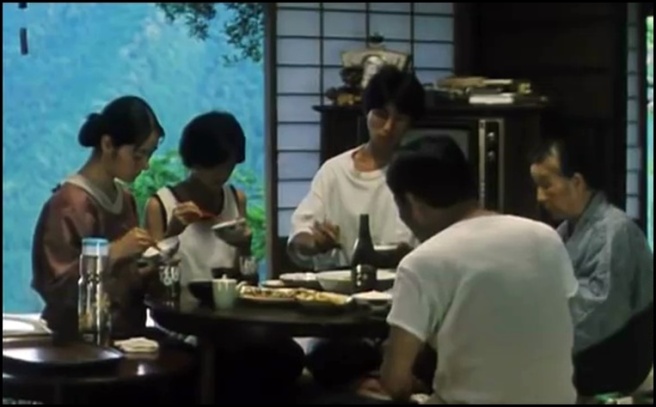
What a surprisingly touching film this was.
It begins with scenes of happy life, happy Japanese family life. Lived in a remote little village up in the mountains.
Here is Eisuke (nephew) taking his young cousin Michiru to school on his scooter.
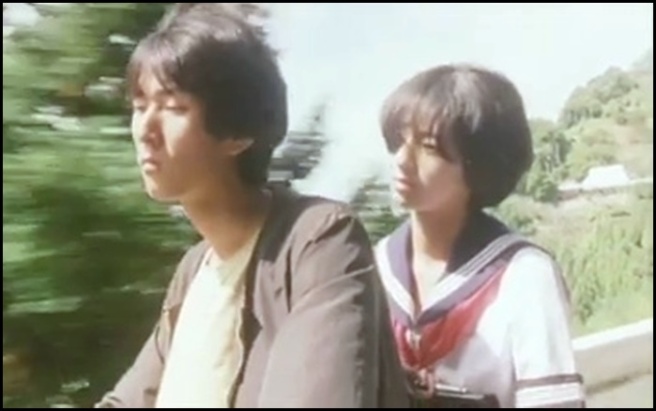
She’s got a schoolgirl crush on him. Which he is not really reciprocating (well, she is only 14 and he is already a young man)
Here she is gazing out the classroom window, probably daydreaming about Eisuke.
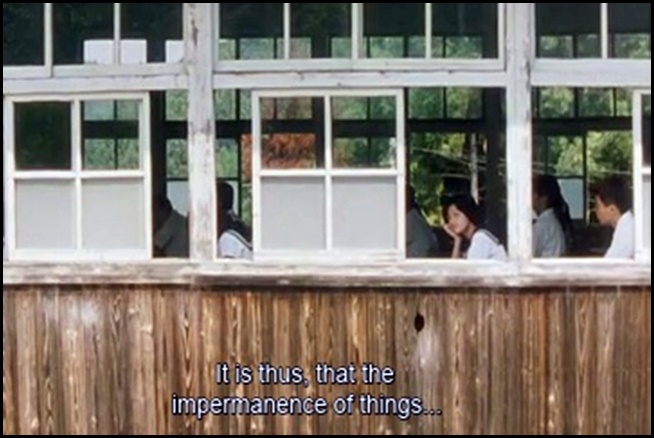
The impermanence of things is right. Nothing ever stays the same. Everything changes.
An economic recession and failed development plans (for the village) lead to tragic family misfortune.
Here is the father. Listening to his moody jazzy piano melancholy.
It seems like he sees no way out. Feels required to end his life.
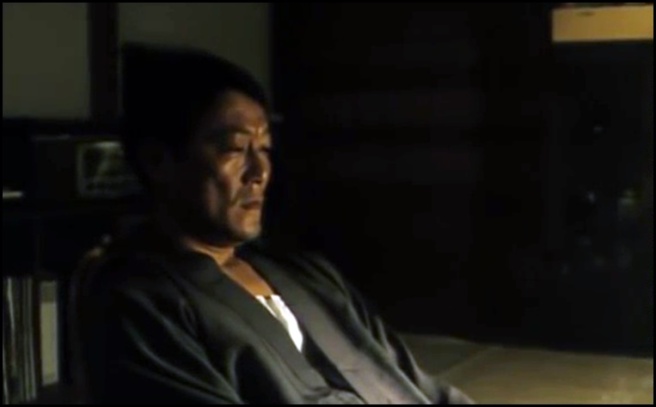
I didn’t really see his suicide coming. It came out of the blue (his bitter blue) Its both shocking and deeply saddening (for the family, and for us the viewers)
The family will never recover.
Wife feels too lonely up here in the mountains without her husband and must return to her own family. Reluctantly, Michiru will have to go with her.
Here they are, grandma and Eisuke saying goodbye to Michiru and her mother.
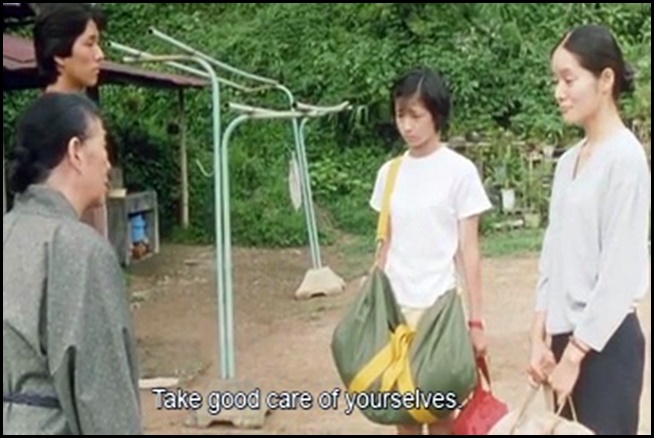
The studied constraint of this leave-taking is devastatingly formal. Eisuke is offering to shake Michiru by the hand.
Handshaking instead of hugging and crying. Everything – all the sadness, the anger, the grief – contained and buried deep within a great black hole of unsaid silence.
This is the Michiru he has looked after since she was a little girl. And yet all he can do, and allow himself to be, is this hand shaking nodding head non-person.
They all nod to one another. Giving deep bows of held in repression and regret.
And here is grandma, having to hide everything she feels inside her sad and weary head.
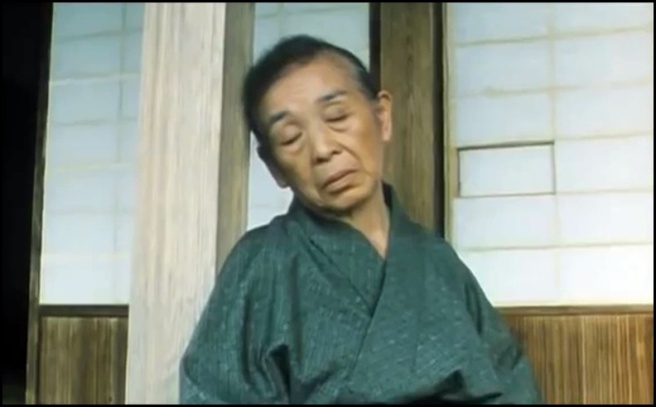
It crept up, and crept in, to me this film. The stealth of its sadness was profoundly disarming.
Its a film I must watch again in the not too distant future.
Dir: Naomi Kawase, Japan
8/10
